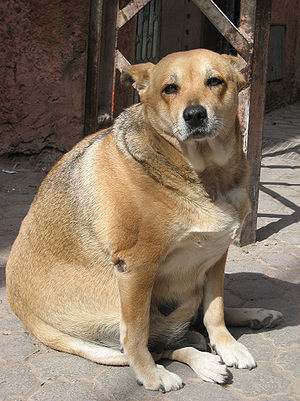Narcoplexy and cataplexy are similar conditions, both are disorders of the nervous system.
Narcoplexy episodes include excessive daytime sleeping, lack of energy, loss of consciousness. With cataplexy, there is no loss of consciousness but a sudden muscle paralysis. The pet is still alert and will follow any movement with the eyes. Both are spontaneous and don’t last long. There are usually no underlying medical problems in either condition.
Episodes can last from several seconds up to 30 minutes. They often occur when the pet is eating, during play, if the pet is over-excited, engaging in sexual activity.
A dog or cat affected with narcoplexy will suddenly collapse onto its side or stomach, muscles go limp, eye movement can be visible but eyes are closed. The pet appears to have fallen into a deep sleep.
With cataplexy episodes, paralysis is seen except for eye movement. The eyes remain open and the pet is aware of what is going on within its sight.
Loud noises, petting or other stimuli usually brings the pet out of a cataplexy or narcoplexy episode.
The conditions are hereditary in some breeds of dogs – dachshunds, Labrador retrievers, poodles and Dobermans. There could be immune system involvment in pets, but the conditions are usually idiopathic (of unknown origin).
If possible, videotape the episodes and bring them to your vet. S/he will ask for a full health history including what occurred before the attack that may have percipitated it. Your vet may stimulate an episode to observe what happens. A complete blood count and chemical profile, urinalysis and electrolyte panel will be performed. If your vet can determine that there is a pattern to the episodes, you may be able to predict an occurrence.
The attacks can be frightening for you, but are not life-threatening for your pet. Your dog or cat is not in pain or suffering during the episodes. If attacks are frequent, there may be medications your vet will prescribe to help control the situation somewhat.
There are precautions to take for pets with narcolepsy or cataplexy. Avoid any activities that overwhelm or over-stimulate your pet. Keep your pet with you indoors or outside to avoid the risk of injury or attack by another animal.



